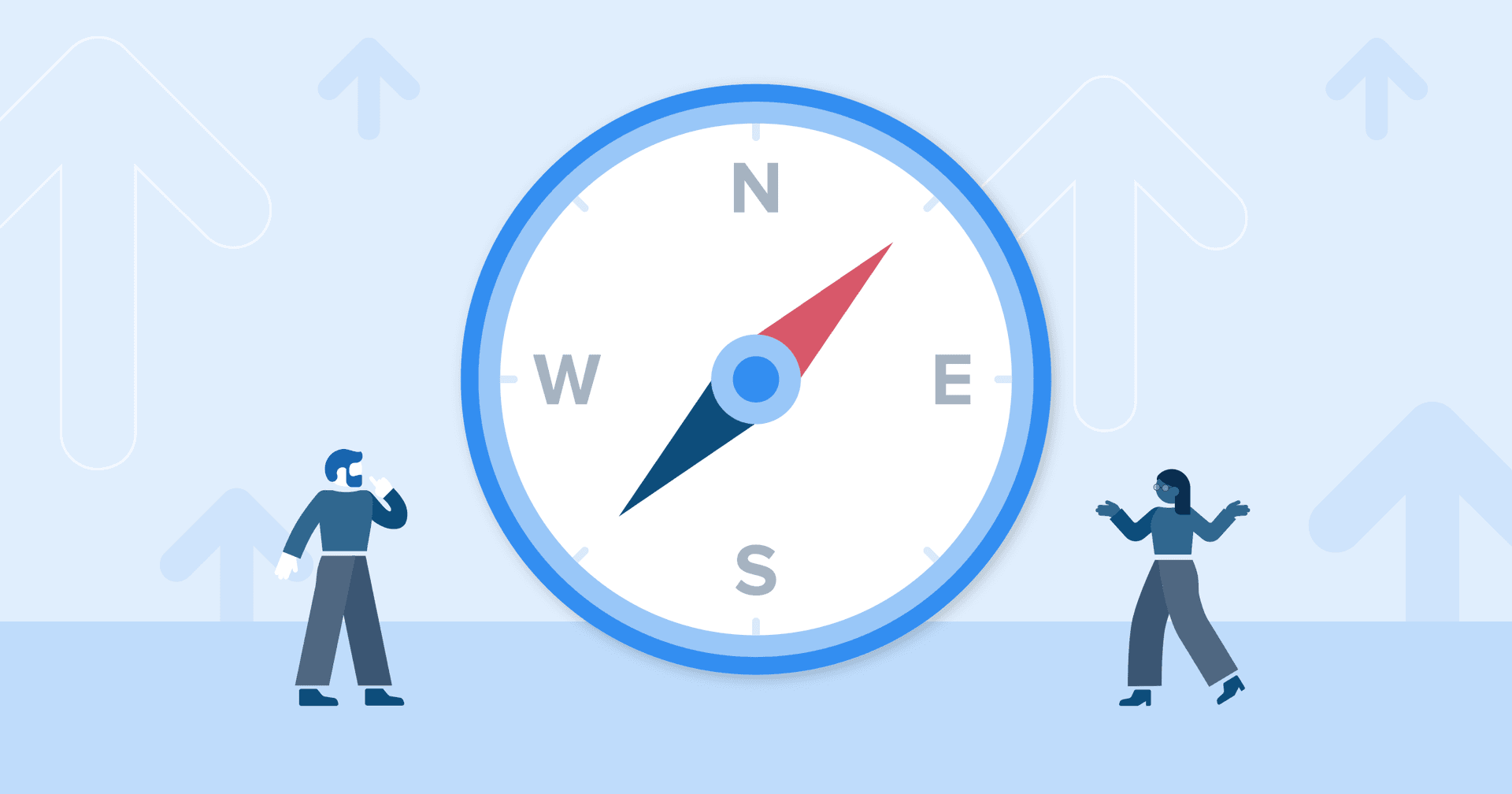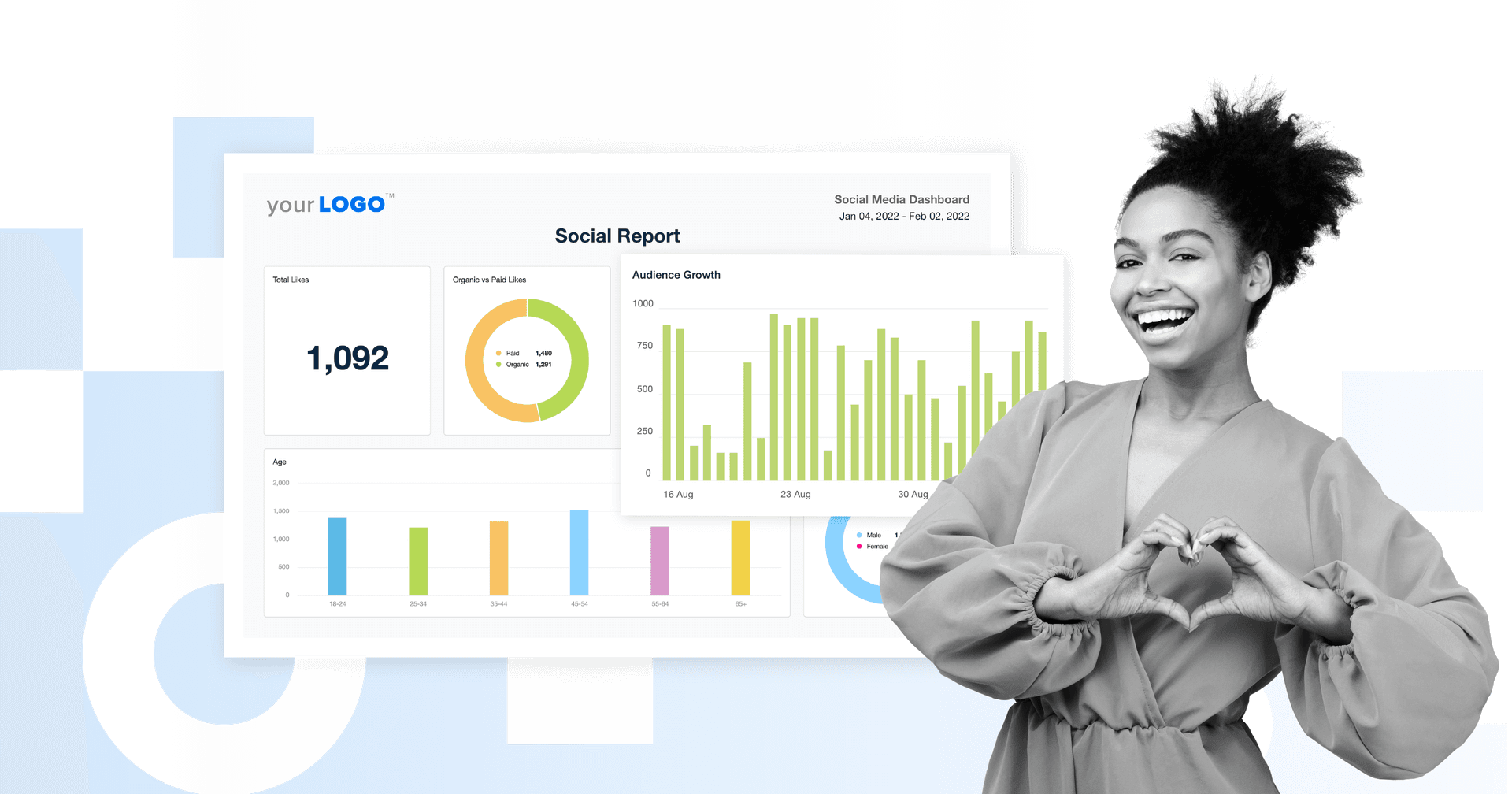Table of Contents
Table of Contents
7,000+ agencies have ditched manual reports. You can too.
Free 14-Day TrialQUICK SUMMARY:
Although unavoidable, leadership mistakes undermine an agency's growth and success. This article identifies the top 10 common leadership mistakes and offers practical tips for avoiding them. By addressing these issues, agency leaders positively impact team dynamics and drive business success. Learn from industry experts to refine leadership skills and create a better and more productive agency environment.
When Shakespeare wrote, “Uneasy is the head that wears a crown”, he wasn’t thinking about the owners and leaders of digital marketing agencies. But his point stands. It’s not easy being the top dog: there’s plenty of pressure and countless ways to fall short. If you want to unlock your agency’s growth potential, you’ll need to look inward, evaluate yourself, and make a concerted, consistent effort to fix your leadership mistakes.
Don’t know where to start? We’ve got you. In this article, we’ll share the top 10 most common leadership mistakes that you might be making at your agency. We’ll also cover practical, easy tips to start fixing those leadership mistakes today.
Let’s get started.
What NOT To Do As a Marketing Agency Leader
As you dive into this article, you might encounter perspectives or points that challenge your current views. Perhaps some of the common leadership mistakes we mention don't strike you as errors, or it may seem like the expectations set for agency owners and people in a leadership position are dauntingly high.
We understand these concerns.
Our goal isn't to gloss over the tough stuff. We're here to discuss how your actions influence your staff, clients, partners, and colleagues.
Mistake #1: Procrastinating on the Tough Calls and Difficult Decisions
Maybe it’s letting go of that long-term employee who isn’t performing. Maybe it’s disappointing your staff when you announce that you can’t upgrade their laptops or hand out bonuses. Maybe it’s explaining to a big client that your team will no longer make exceptions on requests outside the scope of work.
Whatever it may be–you know in your gut you need to do it. You’re just kicking the can down the road.
The problem is, deferring your temporary discomfort can actually scar your business permanently.
The longer that dud employee hangs around, the lower the morale of your star performer drops. The longer that client takes advantage, the more entitled they become while your staff look for greener pastures.
I've shied away from giving direct feedback to staff members for fear that it would hurt their feelings. This allowed habits to form that ultimately threatened our culture and operations. I rectified it by having difficult but necessary conversations.
Ben Barker, Founder & Director, Hoan Marketing
So bite the bullet and get ‘er done. It won’t be fun to do it now, but it’ll be even less fun if you do it later.
Start fixing this leadership mistake today:
Get out a piece of paper. Write down the deepest, darkest truths about the hard decisions you’ve been pushing to the back of your consciousness. Pick one. How would a decisive leader make genuine progress to resolve this issue? Start there. (Hint: it probably means having an uncomfortable conversation or two. Great leaders don't shy away from the tough stuff.)
Mistake #2: Lacking a Compelling, Unifying Company Vision
Sometimes you’re so busy running your business, it’s hard to find a moment to work on the business. Defining your vision might feel like one of those things that has to wait. But we’d caution you strongly against taking that approach. Everybody needs a North Star. It’s human nature.
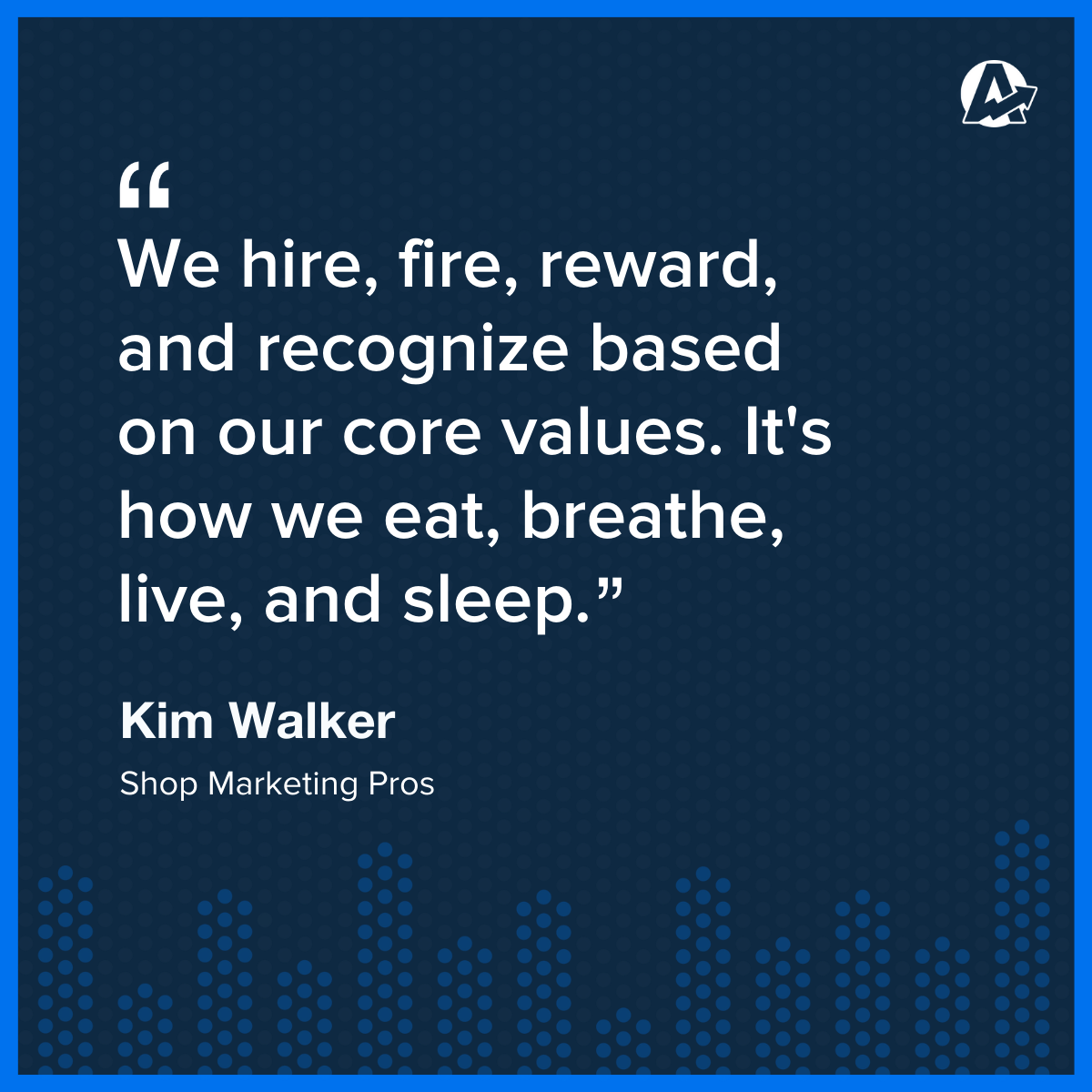
There are distinct advantages to having a company vision that is clear, compelling, and motivating for your staff. Without one, things tend to get “watered down”–and that creates inconsistencies in how you hire and retain staff, what sort of clients you take on, how you produce work, and even what types of work you engage in. All that inconsistency makes it challenging to keep up the pace, the morale, and the quality of your work.
And the same applies to how your agency deals with clients. "One of the gravest mistakes marketing agency leaders can make is failing to set clear expectations early on with their clients," noted Adam Stewart, Founder of Digital Bond.
The assumption that everyone was on the same page, without expressly articulating our goals, timelines, and deliverables, created a ripple effect of challenges. Internally, this oversight led to inefficiencies. My team, without clear direction, often pursued tasks that weren’t aligned with the client’s ultimate goals.
Adam Stewart, Founder, Digital Bond
Establishing expectations isn’t just about outlining deliverables; it’s a comprehensive process that encompasses communication timelines, performance metrics, reporting methods, and even the nature of feedback. "When expectations are not clarified at the outset, it sets the stage for miscommunications and misunderstandings," adds Stewart.
Start fixing this leadership mistake today: We know that you’re likely running a mile a minute managing your digital agency. So we’re not suggesting that you drop everything and define your company vision this week. We’re also not asking you to do it alone.
"A mismatch in expectations versus reality can lead to dissatisfaction, jeopardizing not only the project at hand but also the potential for long-term collaboration," Steward suggests. Clarity on your agency's vision will provide clarity on key operations of the agency, including how the team works with and onboards new clients.
Open your calendar and look out to next quarter. Book a working session with your leadership team–and ask them in the calendar invitation to come prepared with their thoughts and ideas.
Mistake #3: Playing Favorites
We get it. Of course there are going to be colleagues and employees that you secretly like better than others. It may come across as simply as:
“We just click.”
“She knows exactly what to do.”
“He’s my right hand man.”
You may favor a team member because of a shared interest or personality type. Or maybe it has more to do with their reliability and work ethic. If you’re being honest, it could be that they know how to joke around with you.
What does favoritism look like for someone in a leadership position? It’s not just promotions, bonuses, or lunches out with the boss. It’s being called into extra meetings, assigned special projects, sent to conferences, lavished with praise in group settings, given additional opportunities or perks, or generally relied on to be the hero who “saves the day”.
There are plenty of reasons that an otherwise effective leader may consciously or unconsciously favor one or more colleagues or employees. But let’s make one thing clear: you’re here to scale your digital marketing agency. Full stop.
Favoritism does a lot of damage to that goal, drastically affecting your personal reputation, and therefore, the reputation of your agency. This creates a domino effect that can impact hiring new talent and the retention of your current roster.
Just because you don’t “click” with other employees as much as you do with your favorite(s) doesn’t mean they won’t feel the sting of not being in the “in” crowd–and that bitterness causes good employees to walk out the door. Your job is not to divide the “cool” kids from the ‘uncool” kids; it’s to unify the team, allowing everyone to blossom and contribute uniquely to your agency.
Everyone loves to be listened to. Listening for the right things could make a huge difference in business success.
Ben Barker, Founder & Director, Hoan Marketing
Remember that diversity strengthens your agency. Driving away people who are different from you personally and professionally will only make it more difficult to scale your marketing agency.
Start fixing this leadership mistake today: If you're making mistakes by playing favorites, pull up a list of all your team members and start highlighting. Highlight everyone in green who is in the inner circle; these are the people you genuinely like; the people you would choose to invite to your wedding. If you had to have an emergency strategy session, who would you call into that meeting? Highlight those people too.
Now, grab the yellow and highlight everyone who you think is okay–your feelings for them are warm to neutral. The ones that you see on a regular basis but don’t think about much–if ever–outside of office hours.
Finally, highlight everyone in orange who bugs you or whom you privately dislike. Highlight anyone you would call “a bit lazy” or “annoying”. Highlight everyone who you think is underperforming.
Start working your way through the orange and yellow highlighted folks, and find a way to meaningfully connect with one person from that list this week.
I focus on relationships first. When relationships with staff or clients seem to be "off," I make a point to give them extra attention and consider what changes should be made. This instinct has often proven helpful.
Ben Barker, Founder & Director, Hoan Marketing
Choose another next week, and the week after that. You might be amazed at how your opinions change.
Mistake #4: Turning a Blind Eye to Toxic Behavior
Is there a member of your staff–yes, even just one–who could make the case that you as a leader tolerate toxicity at your agency?
Tolerating things like sexual or racist jokes, microaggressions, ageism, flirting, cursing or screaming, comments on appearance, threats, veiled homophobia or transphobia, etc. are a lawsuit waiting to happen–never mind that they are damaging to your agency's culture.
The best leaders understand that culture is set from the top down. So even if you are not the one behaving badly, it is still your responsibility to address and correct the behavior.
Make sure everyone understands that you personally take workplace respect with the utmost seriousness and you will not tolerate any form of harassment at your marketing agency.
Retaining good talent is a challenge that we have been able to overcome. We create a transparent, toxicity-free environment where our employees are empowered to be their authentic selves.
Michael Wisby, CEO, Two Trees PPC
And this extends beyond the agency team. Toxic clients can quickly damage your agency culture. Yes, it's important to provide the best possible service without ruffling feathers or turning away business. But how far is too far when it comes to toxic clients?
Marketing leadership often dances on the fine line between client satisfaction and agency success. One significant leadership mistake is unquestioningly adhering to the belief that the client is always right, even when they're not.
Jackson Sands, Marketing Manager, Sands Media
Over the long haul, dancing around an issue won't do anyone any favors.
Start fixing this leadership mistake today: If you know in your gut that there’s a client or someone at your agency who is repeatedly pushing boundaries or crossing lines, make a game plan ASAP about how you’re going to deal with that person.
If you genuinely don’t think toxic behavior is a problem at your agency, that’s great! Now might be the perfect time to plan a semi-annual anonymous survey or to set up a reporting system so that employees have different avenues to express concerns.
Agency Tip: Even if your digital agency is partially or fully remote, toxic behavior can still happen; it’s just that much harder to catch. So don’t let your guard down.
Mistake #5: Giving or Receiving Feedback Poorly (Or Not At All)
It’s an art to give and receive feedback well. Even those of us with decades of practice still may not have mastered it. But if you know this is a weak spot of yours, there’s no better time to start working on it than now.
The world of marketing agencies is a whirlwind of creativity, strategy, and, occasionally, a touch of chaos. Leadership plays a pivotal role in this circus, and while there are various mistakes that leaders can make, according to Jackson Sands, Marketing Manager at Sands Media, there's only one that truly takes the cake: 'The Feedback Desert'.
So, what's 'The Feedback Desert'?
When an agency creates a working environment where leaders do not appropriately provide any form of feedback to their team, it's like dropping your marketing team into a maze with no breadcrumbs.
Jackson Sands, Marketing Manager, Sands Media
Feedback is a vital part of scaling a marketing agency. Giving feedback effectively allows you to nurture your staff and grow their talent. Receiving it well can lead to some of the best outcomes for your agency.
James Watson is attributed to have said, “If you're the smartest person in the room, you're in the wrong room.” But what if you’re in a room with folks who are afraid to speak up? By being able to accept feedback gracefully, you’ll leverage the best insights and ideas of those around you.
"Leaders who fail to provide constructive criticism stifle their team's growth and risk turning their agency into a creativity crypt," Sands adds as a closing thought.
Start fixing this leadership mistake today:
Constructive feedback starts with a clear understanding of what is working and what needs to be improved. If your agency doesn't have a formal feedback or performance review process, now is the time to consider implementing those processes.
By systematically reviewing our operations, communication patterns, and decision-making processes, we can pinpoint areas that might be misaligned or lacking in clarity.
Adam Stewart, Founder, Digital Bond
Stewart recommends following a 5 step process to evaluate and communicate the areas of growth required for leaders and team members.
Step 1: Feedback Mechanisms. Gather feedback from team members at all levels. This ensures that you are not just relying on the perspective of upper management but also taking into account the experiences and insights of those on the front lines.
Step 2: Evaluate Communication. Effective leadership relies heavily on clear communication. Examine email threads, meeting notes, and other communication records to assess if directives are clear.
Step 3: Performance Metrics Review. Compare outcomes with intended goals to spot any discrepancies. If a particular department or project is consistently falling short, it may indicate a leadership oversight or gap.
Step 4: Decision Analysis. Dissect key decisions made in the past quarter to understand the rationale behind them, the processes leading to them, and their outcomes. This helps identify if decisions were hasty, lacked sufficient data, or were miscommunicated.
Step 5: Consistency Check: Great leaders are consistent. If policies or directions keep changing without a clear rationale, it can be a sign of leadership indecision or lack of clarity.
Once these potential mistakes are identified, the next step is to address them proactively. This might mean providing additional training, re-evaluating certain leadership roles, or refining our internal communication strategies.
Adam Stewart, Founder, Digital Bond
It may take time to establish a formalized audit and review process, but that doesn't mean you should wait to provide initial feedback, especially if there are issues that need to be addressed.
To start today, you could think about the next opportunity you’ll have to give feedback: probably your next meeting. Start by being mindful of your body language; make sure to be interested and at ease, not looking rushed or irritable. Next, be mindful of your tone. You want to sound professional, polite, and constructive–not condescending, frustrated, or upset. Starting there will take you a long way.
And remember, it's not just about giving feedback, it's about receiving it as well.
"Active listening and keeping communication channels open are often underutilized leadership skills," Steward adds. "Truly hearing and understanding team members leads to better collaboration, innovation, and trust within an agency, significantly boosting its success."
Mistake #6: Failing to Delegate
Rome wasn’t built in a day. If you’re like many of the agency owners and leaders we work with, you’ve been grinding hard for a long time. And that probably means you have a tough time letting go of control, whether it’s managing cash flow or scaling a remote team.
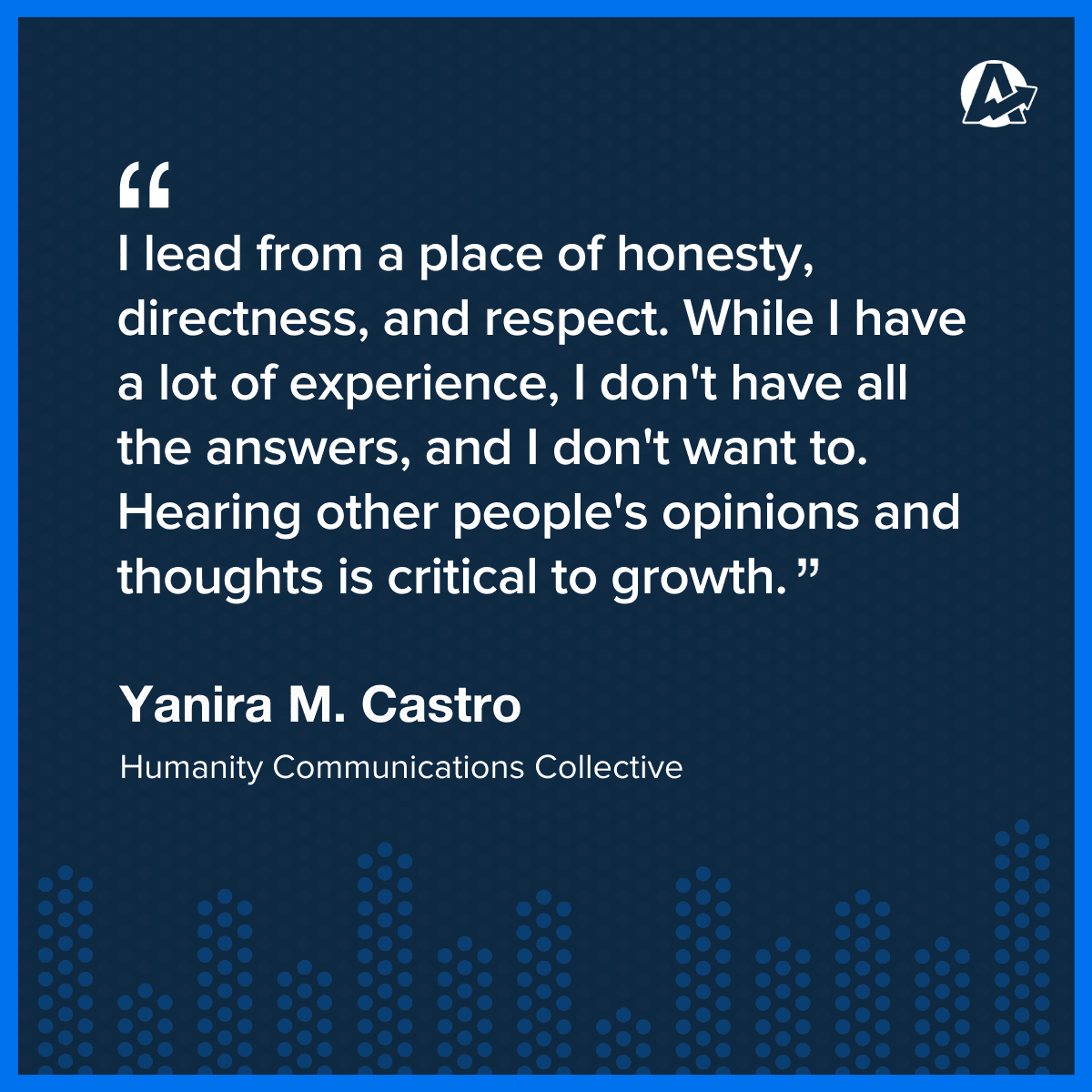
Maybe you’re interviewing every potential hire personally. Maybe you’re still attending client meetings even when you know your team has got it handled. Maybe you’re insisting that you sign off on work before your team delivers it, creating an unnecessary bottleneck.
The worst mistake marketing agency leaders can make is gripping too tight to their own preferences, and consequently not trusting their team.
Ben Barker, Founder & Director, Hoan Marketing
Problem is, you’re just one person. It doesn’t matter whether you’re ultra-productive, mega-dedicated, and accustomed to surviving on five hours’ sleep. You’re still at risk of burning yourself out if you continue on at an unsustainable pace.
And then where will your agency be if that happens? We know it’s hard, but failing to delegate effectively only means that your agency will be in a weakened state later on.
Start fixing this leadership mistake today:
Take a look at your to-do list for the week. What’s one item on there that you’re reasonably confident you don’t need to do yourself? Once you identify it, hand it off to someone you trust. Don’t waffle. Just do it.
Micro-managing stifles creativity and creates a culture of fear. If you don't trust your team, you're basically admitting you don't trust yourself. After all, you've hired and trained them. Now let them do the job!
Simon Kinnear, Account Director, Nielsen McAllister
Can’t let go of a single item? Okay, you’ve identified that delegating is a bigger problem for you and you need to put some serious effort into fixing this leadership mistake.
Mistake #7: Forgetting How To Get in the Weeds
We’re not suggesting that you need to know the technical how-tos of every role at your agency. You’re probably past the days of pulling your own analytics reports or working around the finicky glitches with website code. After all, we literally just said that good leaders know how to delegate.
But never, ever forget that the minutiae is the space where your employees live and breathe every single day. To them, the daily struggles of tools and tasks will greatly impact their morale, productivity, and efficiency.
Marketing moves fast. The most junior member of the team will likely have greater knowledge–or, at least, more practical experience–of the latest technologies. Don't be afraid to show some humility and recognize that.
Simon Kinnear, Account Director, Nielsen McAllister
The leader who sits aloft in their ivory tower with no concept of how work is done is at risk of appearing out-of-touch, ignorant, uncaring, or downright incompetent.
Remember on Arrested Development when Lucille asks, “It’s one banana, Michael. What could it cost? $10?”
Don’t have your Lucille Bluth moment.
When it comes to this mistake, it’s not just other’s opinions that should worry you. Understanding how work progresses is crucial. It will help you and your upper and middle managers ensure that your staff are working effectively and efficiently; not taking too long to do basic work, but also not cutting corners.
Maintaining at least a basic knowledge of what it’s like to be “in the weeds” at your agency allows you to set ambitious–but crucially, still reasonable–standards.
"The trick is to work together: learn new tactics from those who understand them best; in return, leaders can impart the wisdom of how best to use these tools strategically and effectively," Kinnear adds.
Agency Tip: There are other merits to staying current with how things execute at your agency. For one, speaking the lingo gives you a lot of credibility with your staff. Two, you can potentially step in and suggest better methods, or notice an error or problem. And three, you retain a sense of how long and how difficult certain tasks are–and this helps you keep a pulse on which employees are performing at a high level and which employees might be lacking knowledge, wasting time, or making excuses.
Start fixing this leadership mistake today:
List out your departments or squads. Which area do you feel you know the least about? Ask that department manager to coordinate a quick walk-through of some of their recurring processes so that together, you can identify pain points, and pitch in on occassion (when needed). Schedule a similar meeting on a monthly basis with each department head, one by one.
We decided to split some of the mundane tasks and then rotate them on a bi-monthly basis. This has helped me feel connected to some of the work I used to do early on in starting the business.
Ben Barker, Founder & Director, Hoan Marketing
Mistake #8: Failing To Invest in the Tools You Need To Succeed
People need your time, your approval, your sign off. And you’re constantly barraged with complaints, opinions, and requests. How many pitches have you heard for tools that are irrelevant, not feasible, or produce too little ROI? Probably dozens.
But that doesn’t mean you’re off the hook. As an owner or leader, you need to be constantly on the lookout for great products and services that will help you scale your agency. The right task management tools help you serve more clients, free up employee time for higher value tasks, and improve accuracy–all of which enables scalability. You’re looking for the trifecta: quality solutions that are affordable and save dozens, if not hundreds, of hours per month.
Start fixing this leadership mistake today:
Make a plan to ask your various department heads to provide a run-down of their most time-consuming, repetitive, and low-value processes and tasks. From there, choose a few high priority ones and delegate individuals to research tools that will help you solve those problems.
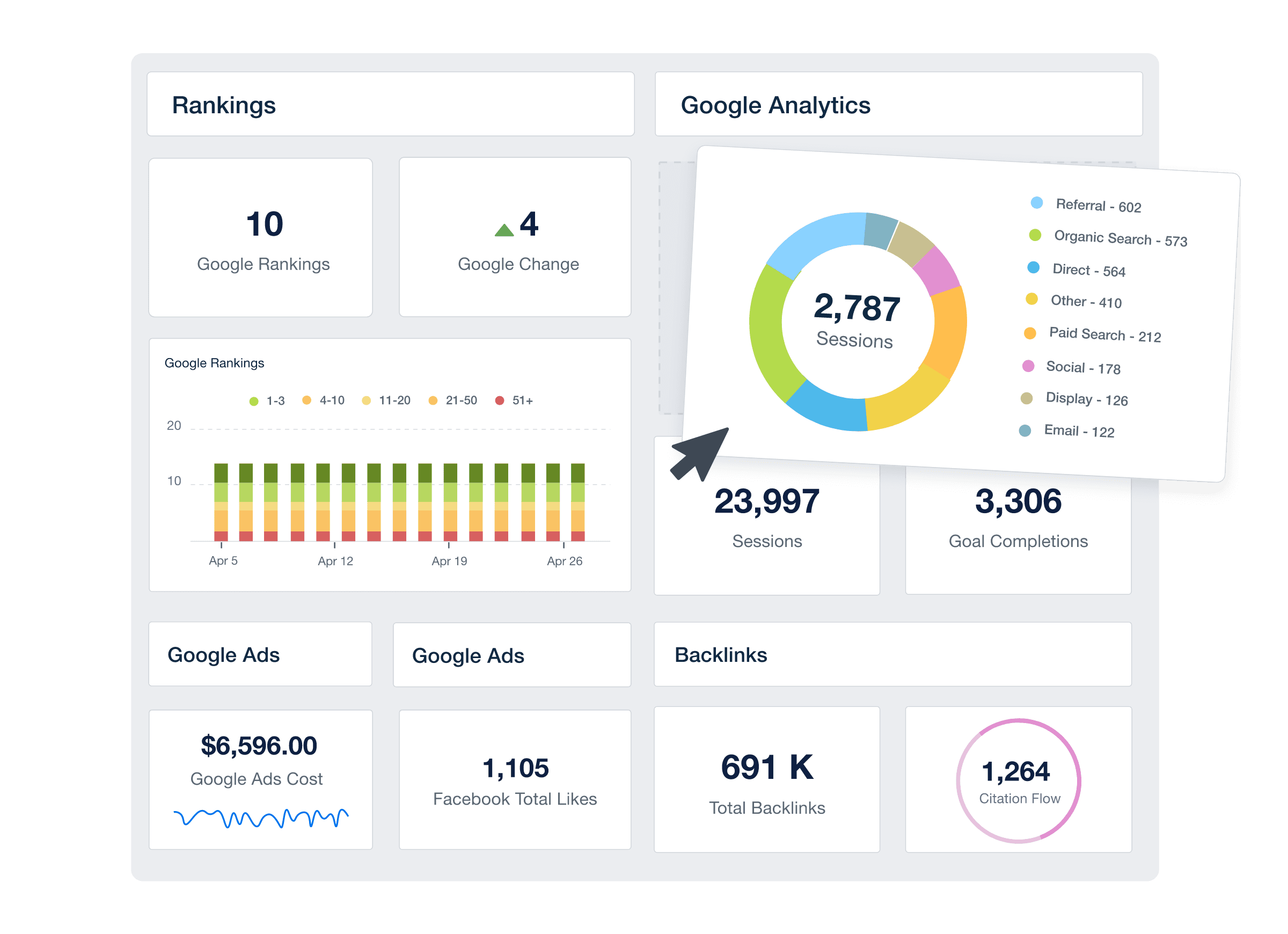
Join over 7,000 customers who choose AgencyAnalytics to streamline their client reporting. Sign up for your free 14-day trial today.
Mistake #9: Forgetting To Train, Retain, Motivate, and Reward
As an agency leader, one of your highest priorities should always be your talent. Do you have enough of it? Can you keep the skilled workers that you already have? Why are talented employees leaving?
To scale your agency, you’ll need a roster of smart, hard-working and passionate individuals who know how to work as a team and are committed to your agency’s vision and goals.
Foster a culture of continuous improvement among your staff, and that starts with your show of support; from a simple kudos at the start of a team meeting to an end-of-year bonus, there are lots of ways to show your staff that their efforts are noticed. If you want to attract, grow, and retain bright, passionate, and talented staff, you’ll need to continually invest in your team.
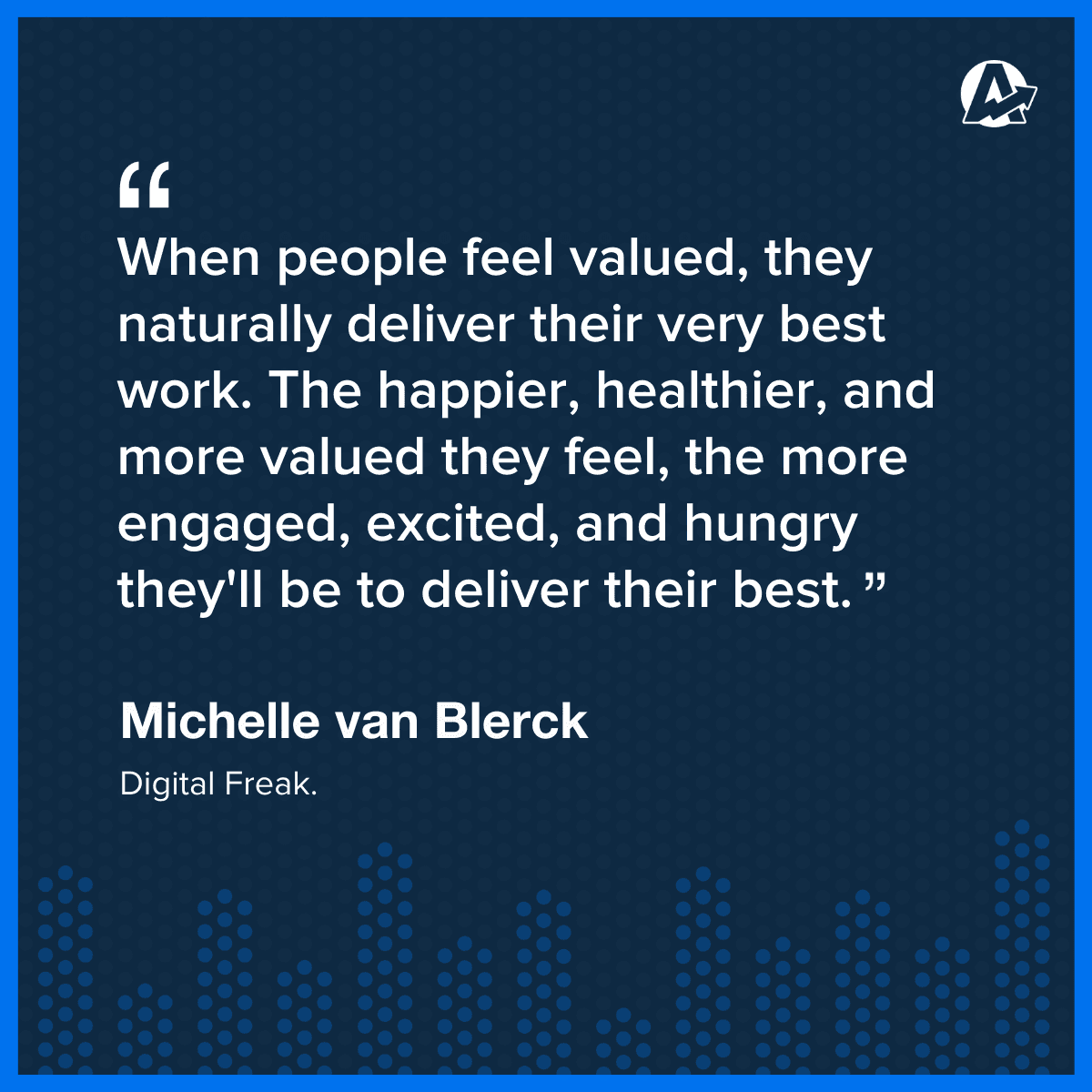
Start fixing this leadership mistake today:
If you can’t adjust your budget at this time to allow for financial incentives or attendance to conferences on the other side of the country, that’s okay. Start a list of lower-cost professional development opportunities such as online courses or “personal project” time. Make it a talking point for your next leadership meeting. Another low-cost, high-impact solution that you could start this week? Lunch with the boss.
Mistake #10: Behaving Like Nobody’s Watching
In some ways, you’re like a goldfish in a bowl, and everyone’s looking in.
Are you breezing in late every morning? Are you mouthing off about a difficult client? Are you humble-bragging about your new power boat or your expensive trip to Antigua? Are you blunt to the point of rudeness? People are listening, watching, and judging. But that’s the price you pay for being at the top.
Like it or not, everyone is looking up to you and looking up at you: you set the example. And though your staff may acknowledge that they can’t “get away” with openly copying your behavior, they will take note of it. You don’t want too wide a chasm between what you do and what’s expected of them. That kind of disparity breeds bitterness, contempt, and subversion.
Good leaders know that the rules should–for the most part–apply to everyone, yourself included.
Start fixing this leadership mistake today:
If you think this is a leadership mistake you’ve been making, it’s a good time to reflect honestly on your habits. Think about the spoken and unspoken rules of your workplace. Which ones do you habitually break? Of those, which one would make you angriest if your staff followed suit? The best leaders are those who consistently walk the talk.
Avoid Common Leadership Mistakes to Scale Your Digital Agency
There were likely many items on our list of the most common leadership mistakes that don’t apply to you, and maybe more than one or two that you disagreed with. It can be particularly uncomfortable to peel back the layers and analyze ourselves with a brutally honest lens, so thanks for sticking with us.
Remember: while seeing and admitting to your mistakes as a leader is important for agency growth, be sure to give yourself some grace too. After all, making mistakes is an unavoidable part of the leadership journey.
I believe that focusing solely on identifying leadership mistakes can sometimes lead to a reactive approach. Instead, we have found that reinforcing positive leadership behaviors and fostering a culture of continuous improvement is a proactive and more effective way to prevent issues.
Jackson Sands, Marketing Manager, Sands Media
If you want to remain continually focused on growing your agency, stay humble and start by growing yourself as an agency leader. For more agency leadership tips, check out our recent video.
Don’t make the mistake of wasting your time on manual reporting. Try AgencyAnalytics free for 14 days and see why more than 7,000 customers choose our reporting solution, month after month.

Written by
Elyse Gagné develops branding and content strategies that unite businesses with their customers. A podcast junkie, you'll find her learning about the latest technologies and brand storytelling techniques while she gardens or hikes.
Read more posts by Elyse GagnéSee how 7,100+ marketing agencies help clients win
Free 14-day trial. No credit card required.



